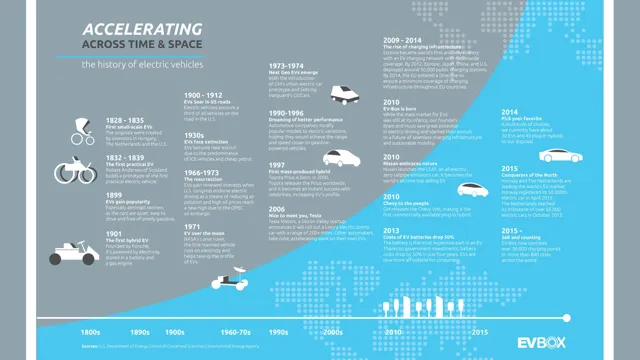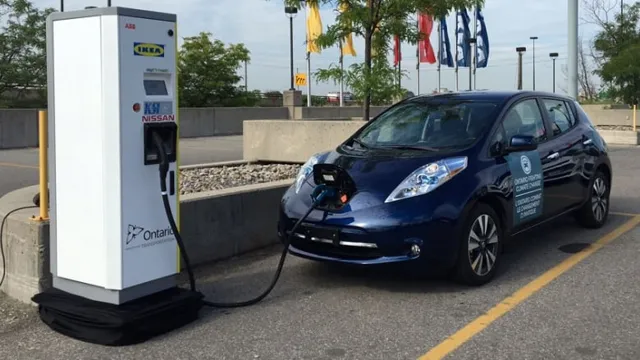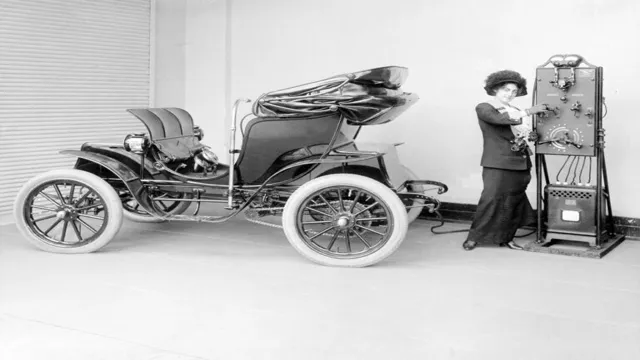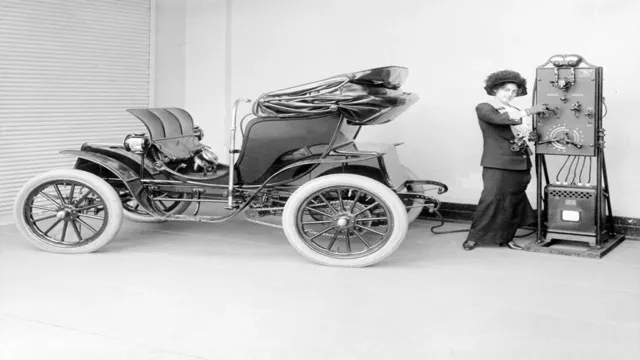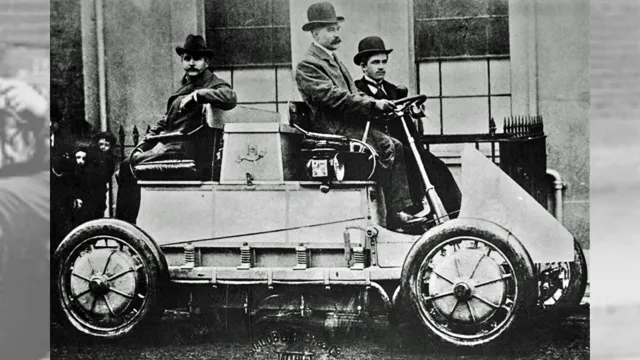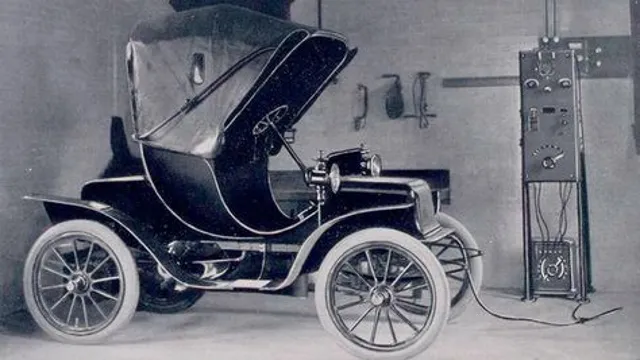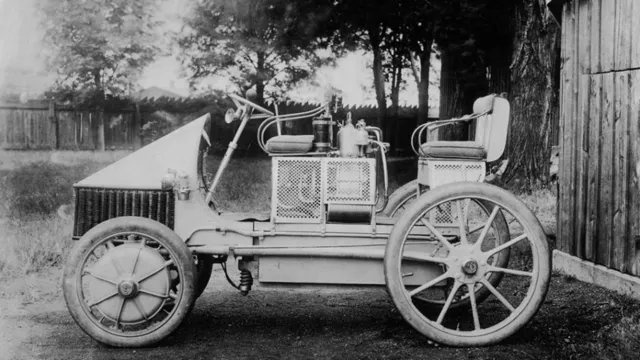The Electrifying Evolution of Electric Cars in the UK: A Fascinating History
Electric cars are no longer a new phenomenon and many people have already embraced them as part of their daily lives. But, did you know that the history of electric cars in the UK dates back to the 19th century? Yes, that’s right, the UK has been exploring the potential of electric cars for more than a century. People have always been looking for alternatives to petrol-fuelled vehicles, and electric cars are one of the most popular options.
The first electric car was invented in the UK back in the 1830s, and since then, many innovators have been working tirelessly to improve the technology. During the early 20th century, electric cars were becoming increasingly popular. But, with the discovery of oil and the mass production of petrol-fueled vehicles, the market for electric cars dwindled.
However, in recent years, electric cars have been making a comeback, and the UK government is doing everything possible to promote its use. The UK government has set a target of banning the sale of new petrol and diesel cars by 2035, and this has made electric cars more attractive than ever before. In this blog, we will take a closer look at the history of electric cars in the UK, from the earliest inventions to the modern-day electric cars that we see on our roads.
We will also explore the benefits of electric cars and why they are becoming an increasingly popular choice among car users today. So, buckle up and let’s take a ride through the history of electric cars in the UK!
Early Electric Vehicles in the UK
The history of electric cars in the UK stretches back to the early 19th century. One of the earliest examples was developed by Thomas Parker of Wolverhampton, who produced an electric car in 188 This paved the way for other manufacturers, including London Electric Cab Company, which introduced electric taxis in London in 189
Electric vehicles enjoyed a brief period of popularity, but the rise of the internal combustion engine and the increasing availability of affordable petrol meant that interest in electric cars waned. However, as environmental concerns have grown, there has been a renewed interest in electric cars, and many major car manufacturers are now investing heavily in electric technology. While the early electric vehicles may seem primitive by today’s standards, they paved the way for the development of the electric cars we see on the roads today.
The First Electric Cars
Early electric vehicles were first introduced in the UK back in the late 1800s and early 1900s. These early electric cars were quite different from the models we’re familiar with today. They were often small, slow, and had limited range due to the battery technology of the time.
However, despite their limitations, electric vehicles proved to be quite popular, especially in urban areas where their quiet operation and lack of emissions made them an attractive option. One of the key benefits of driving an electric car at that time was the ability to avoid the unpleasantness of the internal combustion engine, which was noisy, smelly, and notoriously unreliable. While the technology of these early electric vehicles was far from perfect, they laid the foundation for the electric cars we have today, which are more efficient, powerful, and environmentally friendly than ever before.
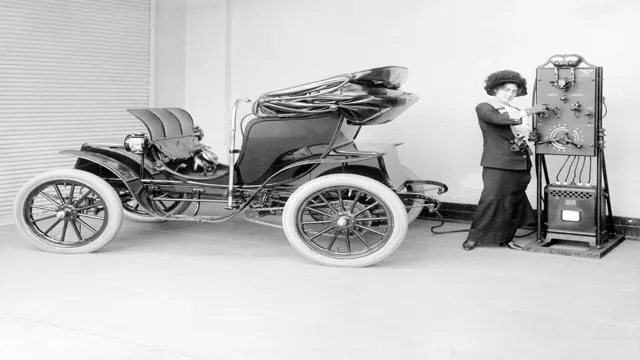
Rise and Fall of Electric Cars in the UK
Electric Cars, UK In the early days of electric vehicles (EVs) in the UK, they were a common sight on the roads. These cars were powered by lead-acid batteries and had a range of around 50 miles per charge. However, they soon fell out of favor due to their limited range and the high cost of the technology.
The petrol engine quickly emerged as the dominant power source for vehicles, and EVs were forgotten for several decades. It wasn’t until the 21st century that they regained popularity, thanks to advancements in battery technology and a growing concern for the environment. Today, electric cars in the UK are becoming more and more common, with a range of models available from different manufacturers.
As the world continues to focus on finding sustainable solutions to climate change, the future looks bright for Electric Cars in the UK.
Modern Electric Cars in the UK
The history of electric cars in the UK is quite fascinating. It dates back to the late 19th century when electric cars were more popular than petrol-powered ones. However, as the years went by and gasoline engines gained popularity, electric cars fell out of favor until the 21st century.
Nowadays, electric cars have enjoyed a resurgence in popularity, thanks to advancements in technology and concerns about pollution. In fact, many car manufacturers now offer electric vehicles as part of their lineup, providing drivers with an eco-friendly and efficient alternative to traditional cars. Some of the best-known modern electric cars in the UK include the Nissan Leaf, the Tesla Model S, and the BMW i
With more and more people interested in reducing their carbon footprint, it’s likely that electric cars will continue to grow in popularity in the coming years.
Nissan Leaf and Other Early Electric Models
Modern Electric Cars in the UK The Nissan Leaf, one of the earliest electric car models available in the UK, revolutionized the car industry with its modern design and eco-friendly features. What started as an unpopular and unprofitable idea, soon turned into a bonanza for other automakers and drivers alike. Today, there are numerous modern electric car models available not only in the UK but across the world.
Some of these models include the Tesla Model S, BMW i3, and Renault ZOE, to name a few. Modern electric cars boast impressive driving ranges, fast charging capabilities, and low emissions or zero emissions, depending on the model. They are not only environmentally-friendly but also stylish and sophisticated in design, attracting car enthusiasts of all ages.
The benefits of owning an electric car extend beyond personal satisfaction to reduced carbon footprint and energy security for the country as a whole. As technology continues to evolve, we can only expect to see more innovations in the electric car market in the UK and beyond.
Tesla and Other High-End Electric Cars in the UK
Modern electric cars have gained a lot of popularity in the UK in recent years, with Tesla being one of the most sought-after high-end electric car brands. These cars come with advanced technology features and innovative designs that are not only futuristic but practical. They offer high-performance driving experiences, eco-friendliness, and cost savings in the long run, especially with the UK government’s incentive schemes.
Besides Tesla, other high-end electric cars available in the UK include the Jaguar I-PACE, Porsche Taycan, Audi e-tron GT, and Mercedes EQS. These electric cars are revolutionizing the auto industry by providing a sustainable way of transportation that is not only good for the environment but also luxurious and stylish. With the increasing emphasis on reducing carbon emissions and promoting renewable energy, there is no doubt that modern electric cars have a bright future in the UK, and are the new trend in automobile transportation.
Electric Cars in the UK Today
Electric cars are becoming increasingly popular in the UK as more and more people look for eco-friendly and cost-efficient options. Thanks to recent advancements in technology, modern electric cars are now capable of driving longer distances on a single charge and they can be recharged faster than ever before. Some of the most popular models available in the UK today include the Tesla Model 3, Nissan Leaf, and the Volkswagen ID.
These cars offer excellent performance, safety features, and modern design. The UK government is also offering incentives to help encourage the transition to electric cars, such as grants for purchasing an electric vehicle and discounts off the price of charging stations.
As people become more aware of the benefits of electric cars, it is clear that they will continue to grow in popularity in the UK and around the world.
Future of Electric Cars in the UK
The history of electric cars in the UK dates back to the early 1900s, when electric vehicles were in competition with their gasoline counterparts. However, it wasn’t until the 2010s that electric cars became widely popular in the UK. In 2011, the Nissan Leaf became the first mass-produced electric car to hit the roads in the UK, followed by the BMW i3 in 201
Since then, several other popular electric car models have been introduced to the market, including Tesla’s models, the Renault Zoe, and the Volkswagen ID. As of 2021, about 300,000 electric cars have been registered in the UK.
The transition to electric cars is seen as a key component of the UK’s efforts to become carbon neutral by 2050. The government has announced plans to ban the sale of new petrol and diesel cars by 2030, which is expected to promote the adoption of electric cars. Despite the challenges that electric car infrastructure still faces in the UK, such as a need for more charging stations and a lack of sustainable batteries, electric cars are undoubtedly the future of transportation in the UK.
Government Plans and Support for Electric Vehicles
The future of electric cars in the UK is looking bright, with the government making a big push towards zero-emission vehicles. The UK government has set a target of banning the sale of new petrol and diesel cars by 2030, and is investing heavily in infrastructure to support the transition to electric vehicles (EVs). This includes building more charging stations, offering grants for EV purchases, and introducing tax incentives for businesses that invest in EVs.
The burst of incentives and support from the government tells us that the UK’s EV market is set to explode, and with the ongoing advancements in battery technology, range anxiety will soon be a thing of the past. It’s safe to say that the future of transportation in the UK will be cleaner, greener and more efficient than ever before, with EVs leading the way. So, now is the time to embrace the EV revolution and join the journey towards a net-zero future.
Expected Growth of Electric Cars in the UK
As the world becomes increasingly aware of the negative impact of carbon emissions on the environment, more and more people are turning to electric cars as a cleaner and more sustainable alternative. In the UK, the government has set ambitious targets for the number of new electric vehicles on the road, with the aim of ending the sale of petrol and diesel cars by 2030. This push towards electric cars is being fueled by advancements in technology, making electric vehicles more affordable, efficient, and convenient than ever before.
While electric cars still only make up a small percentage of total car sales in the UK, experts predict that this will change rapidly in the coming years as more people make the switch to electric. With initiatives such as increased charging infrastructure and financial incentives for electric vehicle owners, the future of electric cars in the UK looks bright. The expected growth of electric cars in the UK shows that the country is taking the necessary steps towards a more sustainable future, while also demonstrating an increased awareness of the benefits of driving electric cars.
Conclusion: Electric Cars in the UK
From the early days of electric vehicles in the UK, when they were seen as a quirky novelty, to the more recent surge in popularity due to advances in technology and concerns over the environment, the history of electric cars in the UK has been one of progress, innovation, and determination. While there may be bumps in the road ahead, one thing is clear: the future of the electric car industry in the UK is bright, and we can look forward to even more exciting developments and revolutions in the years to come. So let’s all hop in and enjoy the ride – just don’t forget to plug in!”
FAQs
When was the first electric car manufactured in the UK?
The first electric car was manufactured in the UK in 1884.
How many electric cars are currently on the roads in the UK?
As of March 2021, there are approximately 200,000 electric cars on the roads in the UK.
What is the range of an average electric car in the UK?
The average range of an electric car in the UK is around 150-200 miles on a single charge.
How much does it cost to charge an electric car in the UK?
The cost to charge an electric car in the UK varies, but on average it can cost between £7-£10 for a full charge. However, this cost can be significantly lower for EV owners who charge using off-peak electricity tariffs.
